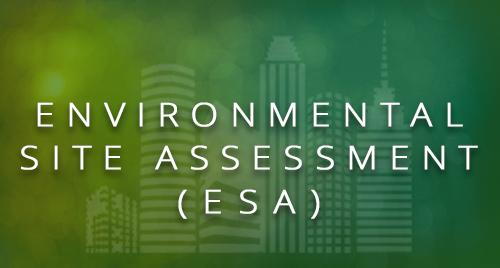
- posted: Jul. 12, 2022
- Business Law, BRM Attorneys, BRM Shareholders, Troy Michigan Defense Firm, Commercial Property Law, Commercial Transactions
So, you just made an offer to purchase a commercial building – now what? Many buyers of commercial property believe that finding a suitable location and negotiating a purchase price are the most important aspects of a purchase. While those items are paramount, performing appropriate due diligence before closing is of the upmost importance. There is a litany of items that should be carefully reviewed before closing, but one of the most crucial parts of due diligence a buyer can conduct is a Phase 1 Environmental Site Assessment (ESA). Many buyers have little understanding of what a Phase 1 ESA entails.
What is a Phase 1 ESA?
A Phase 1 ESA assesses whether current or historical uses of the subject property have contaminated the soil or groundwater beneath a property. A licensed environmental engineer will perform an on-site assessment to review the condition of the property. The engineer will review historical records, aerial photographs, regulatory databases, and conduct interviews in order to obtain a detailed understanding of the property.
Recognized Environmental Conditions (REC)
Once the Phase 1 ESA is complete, a report will be prepared identifying any environmental concerns and include recommendations as to what steps should be taken. As a buyer, you should be most concerned with the identification of Recognized Environmental Conditions or “REC”. RECs indicate a known contamination or the potential for the subsurface to have been impacted by contamination. Common examples of RECs include underground storage tanks, petroleum product spills, & hazardous waste disposal. Depending on the severity of an identified REC, a Phase 2 ESA will usually be recommended. The Phase 2 is a more detailed study of the soil, groundwater & vapor on a property in order to determine the extent of the environmental impact.
Due Diligence
So why undergo the expense of a Phase 1 and potentially a Phase 2? Conducting this testing during the due diligence period gives the buyer a potential opportunity to terminate a purchase and receive a refund of the full deposit. Furthermore, if a buyer decides to continue with the purchase even after a REC has been identified, a Phase 2 will allow it to be privy to the innocent land owner defense under the Comprehensive Environmental Response, Compensation and Liability Act (“CERCLA”). Essentially, the Phase 1 & 2 ESA reports will act as a liability shield to prove the buyer did not exacerbate existing contamination on the property, and thus will not be responsible for its potential remediation. Of course, there are always exceptions to this defense, so a full discussion of the environmental conditions of a property with an environmental expert and attorney is always recommended.
When purchasing a commercial property, conducting the appropriate due diligence should be just as paramount as purchase price. The attorneys at Bowen, Radabaugh & Milton, P.C. are experts in the field of commercial real estate and have the experience and knowledge to advise clients through the entire buying process.
For more information about the best practices when it comes to commercial property transactions, call or email Nate Welch at 248.641.2952 | [email protected].


